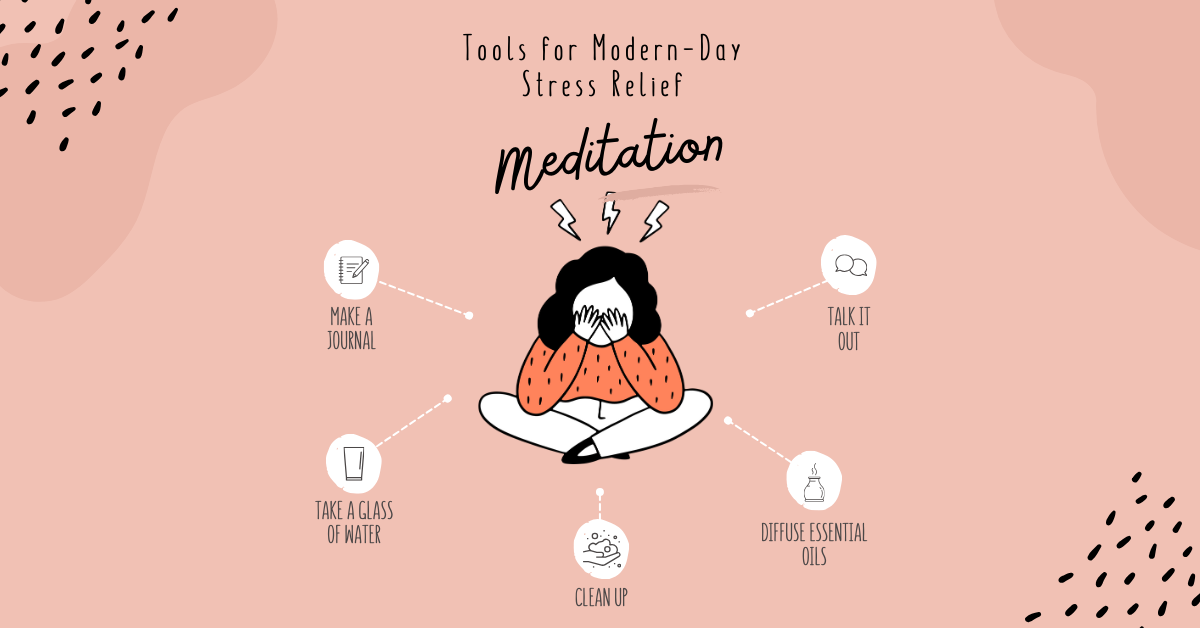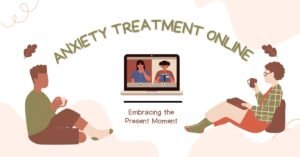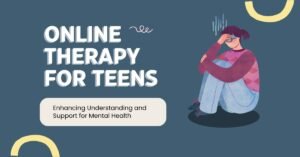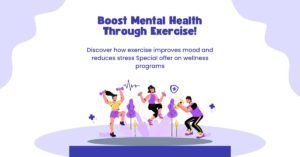In today’s fast-paced world, stress is a common part of life. The demands of work, family, and personal responsibilities can leave us feeling overwhelmed and anxious. That’s where mindfulness and meditation come in. These practices have been used for centuries to promote peace and relaxation. Today, many people are discovering the mindfulness meditation benefits that help them reduce stress and improve their overall well-being. This article will explore how mindfulness and meditation can serve as effective tools for modern-day stress relief, offering practical exercises and relaxation techniques to help you find mental clarity and emotional balance.
What is Mindfulness Meditation?
Mindfulness meditation is a practice that involves focusing your attention on the present moment without judgment. It’s about becoming aware of your thoughts, feelings, and surroundings, and accepting them without trying to change them. This type of meditation helps you slow down and observe the world around you, which can reduce feelings of stress and anxiety.
One of the key mindfulness meditation benefits is that it teaches you to stay grounded in the present. By focusing on what’s happening right now, rather than worrying about the future or dwelling on the past, you can experience a sense of calm and control.
The Benefits of Mindfulness Meditation for Stress Management
There are numerous mindfulness meditation benefits, especially when it comes to stress management. Stress can take a toll on both your mind and body, causing tension, headaches, trouble sleeping, and even long-term health issues. Practicing mindfulness and meditation regularly can help:
- Reduce stress: Mindfulness meditation encourages you to take deep breaths and relax, which helps lower your body’s stress response.
- Improve focus: By training your mind to stay in the present moment, you can increase your ability to focus on tasks and make better decisions.
- Enhance emotional well-being: Mindfulness teaches you to observe your emotions without getting caught up in them. This can lead to better emotional regulation and a more balanced mood.
- Boost mental clarity: Meditation clears your mind of distractions, helping you think more clearly and creatively.
Whether you’re facing work-related pressures or dealing with personal challenges, mindfulness can be a powerful tool to help you manage stress and find inner peace.
Mindfulness Exercises to Try
Incorporating mindfulness into your daily routine doesn’t have to be complicated. Here are a few simple mindfulness exercises you can try to improve your mental clarity and emotional well-being:
- Deep breathing: Sit or lie down in a comfortable position. Close your eyes and focus on your breath. Take slow, deep breaths, inhaling through your nose and exhaling through your mouth. Pay attention to how your chest rises and falls with each breath. This exercise helps calm the nervous system and reduce stress.
- Body scan: Start by lying down or sitting in a comfortable position. Close your eyes and slowly bring your attention to different parts of your body, starting from your toes and moving up to your head. Notice any sensations or areas of tension. This exercise helps you become more aware of your body and promotes relaxation.
- Mindful eating: Choose a snack or meal, and eat it slowly, paying close attention to the flavors, textures, and smells. Notice how your body feels as you eat, and take your time with each bite. This helps you stay in the present moment and enjoy the experience of eating.
These simple exercises can be done anywhere, at any time, and offer immediate stress relief by helping you focus on the present.
Relaxation Techniques for Everyday Use
Mindfulness isn’t just about meditation; it’s also about incorporating relaxation techniques into your daily life to help manage stress. These techniques can be especially helpful when you’re feeling overwhelmed or anxious:
- Progressive muscle relaxation: This involves tensing and then relaxing different muscle groups in your body. Start with your feet, tensing the muscles for a few seconds before releasing. Work your way up to your neck and shoulders. This exercise helps release physical tension caused by stress.
- Guided imagery: Close your eyes and picture a peaceful place, such as a beach or a forest. Imagine all the details of that place, including the sounds, smells, and sensations. Guided imagery can transport your mind away from stressful thoughts and create a sense of calm.
- Stretching: Gentle stretching can relieve physical tension and improve your flexibility. Take a few minutes to stretch your arms, legs, and back, focusing on your breath as you move.
These relaxation techniques are easy to incorporate into your day and can provide quick relief from stress and anxiety.
Meditation Practices for Mental Clarity
In addition to mindfulness exercises, there are several meditation practices that can help you achieve greater mental clarity and emotional well-being. Here are a few you can try:
- Loving-kindness meditation: This practice involves focusing on sending love and compassion to yourself and others. Begin by sitting quietly and repeating phrases such as, “May I be happy, may I be healthy, may I be at peace.” Then, extend these wishes to others in your life. This practice promotes emotional well-being by fostering positive feelings.
- Focused meditation: Choose an object, sound, or even your breath to focus on. Every time your mind starts to wander, gently bring it back to your point of focus. This practice helps improve concentration and mental clarity.
- Walking meditation: Instead of sitting, try meditating while walking slowly and mindfully. Pay attention to the sensations in your feet as they touch the ground, the movement of your body, and the sights and sounds around you. Walking meditation combines mindfulness with gentle physical activity.
Regular meditation practice, even if just for a few minutes a day, can help you build resilience to stress and enhance your mental clarity.
How Mindfulness Meditation Enhances Emotional Well-being
Mindfulness meditation isn’t just about reducing stress; it also promotes long-term emotional well-being. By practicing mindfulness, you learn to respond to situations with a sense of calm and perspective, rather than reacting impulsively. This can lead to more positive relationships, improved communication, and greater emotional stability.
Mindfulness helps you become more aware of your emotions and thoughts, allowing you to process them in a healthy way. Instead of avoiding negative feelings, mindfulness encourages you to observe them without judgment, which can help you develop emotional resilience.
Why Mindfulness is a Key to Modern-Day Stress Relief
With the demands of modern life, it’s easy to feel overwhelmed and disconnected. The pressures of work, social obligations, and personal responsibilities can leave little time for self-care. However, mindfulness meditation benefits go beyond just stress relief. It offers a way to reconnect with yourself, find inner peace, and build resilience to life’s challenges.
Incorporating mindfulness into your routine can help you manage stress in a healthy way, improve your mental clarity, and promote emotional well-being. Whether through meditation practices, mindfulness exercises, or relaxation techniques, these tools offer practical ways to navigate the challenges of modern life.
Why Passages WV?
At Passages WV, we offer a variety of resources to help you manage stress and improve your mental health. Whether you’re interested in learning more about mindfulness meditation, stress management techniques, or other forms of emotional well-being, we’re here to support you. Visit our website to explore how our services can help you live a more balanced, peaceful life.
Conclusion
In a world filled with constant demands and stress, mindfulness and meditation provide valuable tools for stress management and emotional well-being. The mindfulness meditation benefits are vast, offering relaxation, mental clarity, and a deeper connection with yourself. By incorporating mindfulness exercises and meditation practices into your daily routine, you can find peace and balance in even the most stressful moments. If you’re looking for more support on your journey to well-being, be sure to explore the services offered at Passages WV.







